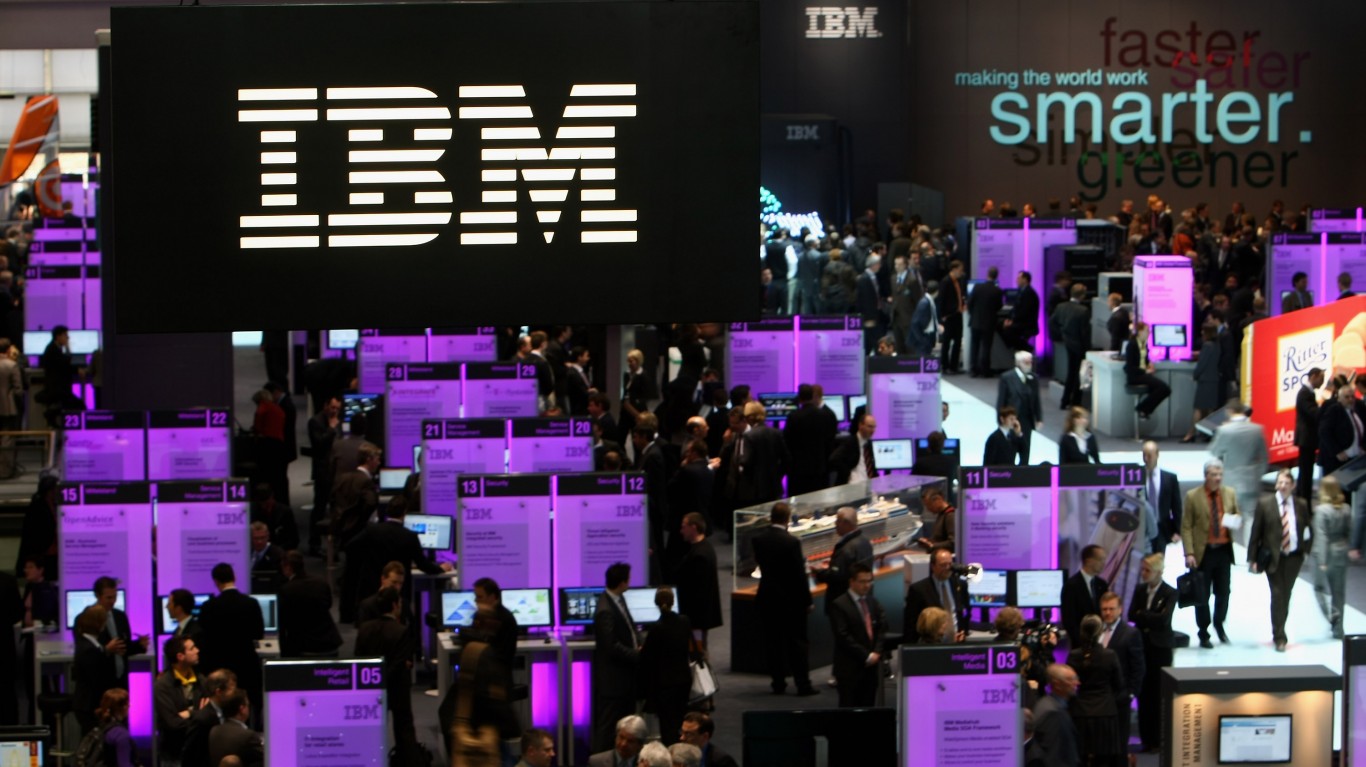Technology
Why One Analyst Sees IBM Handily Outperforming Apple Shares in 2020

Published:
Last Updated:

This last week started the earnings season floodgates and many of the top companies have started reporting results for the calendar second quarter of 2019. Many more will be releasing results in the coming two weeks. International Business Machines Corp. (NYSE: IBM) has reported its earnings and Apple Inc. (NASDAQ: AAPL) has yet to report.
Now that IBM has finally closed on its acquisition of Red Hat, its largest transaction to date, it turns out that there is at least one analyst who follows both companies and sees more upside on IBM than on Apple.
Nomura/Instinet analyst Jeffrey Kvaal covers both companies. What is interesting is that both IBM and Apple are technology giants, but he reality is that in the modern era they have almost nothing in common for their core industries.
After IBM’s earnings, Kvaal reiterated his Buy rating and raised his target to $165 from $160. IBM closed out the week at $149.68, after having been at $143.07 prior to earnings. Kvaal’s summary said:
Sales upside in the highest margin segments and a solid EPS beat lifted visibility into IBM’s full-year guidance; the revelation the next Z cycle would land in the fourth quarter boosts the 2020 outlook. Expected backlog declines nonetheless irritate. IBM will integrate Red Hat into guidance on August 2nd.
While that may not offer much, the estimates for coming quarters and years have been updated. The 2019E revenue and EPS estimates of $76.9 billion and $13.90 were maintained, but the 2020 estimates went from $77.1 billion in revenues and $14.17 in EPS up to $78.0 billion and $14.40 EPS. These might not be huge changes, but they are still positive. Kvaal sees higher sales in Cognitive and Cloud Software and from a mainframe refresh in Systems sales — and the consensus at the time was $13.90 EPS for 2019 and $14.08 EPS for 2020.
The IBM target price hike was based on an approximate 11.5 times multiple to the firm’s 2020E EPS of $14.40 as a return to growth merits a premium multiple to its five-year average of about 10 times earnings.
Nomura/Instinet has just a Neutral rating on Apple, and the raised target on Apple to $180 from $175 is still handily under Friday’s closing price of $202.59.
Kvaal’s targets for Apple’s earnings report on July 30th indicates a slow finish to the iPhone Xs cycle and steady App Store growth, but he has low expectations for the impending iPhone cycle and the cycle one beyond, and he does not have conviction that Apple’s new services are going to add materially to earnings. The ecosystem and buyback program remain strong, hence the slightly higher share target despite a Neutral rating.
The report on Apple also addressed China exposure. Kvaal noted:
China gaming recovery has not lifted App Store growth. Our Sensor Tower analysis indicates China gaming growth has recovered from the 2018 freeze on new game approvals, though gaming growth outside China has slowed. We believe App Store growth overall remains 15% to 18%; we model total Services growth similar to consensus of 16% to 17%.
Apple closed out the week at $202.59 and the Instinet target of $180 is down handily from the Refinitiv consensus analyst target price of $211.18. On top of being under the pack that is mostly Buy-rated on Apple, Kvaal is valuing Apple at roughly 13.5 times expected 2020 earnings and is calling for roughly 11% downside from the current Apple price before factoring in the 1.5% dividend yield.
Kvaal’s $165 target on IBM is up above the $148.37 consensus target price from Refinitiv and implies just over 10% upside from the $149.68 close before factoring in its 4.3% dividend yield.
Most investors might not think much of IBM these days after years of going literally nowhere and with this stock having fallen 30% from its peak back in 2013. That said, stock calls often differ from the future dominance of one company in an industry and its valuation as a stock.
Apple could easily fall within the 10 stocks to raise its dividend 10% or more for the next five years (or more) if it wants to.
Thank you for reading! Have some feedback for us?
Contact the 24/7 Wall St. editorial team.